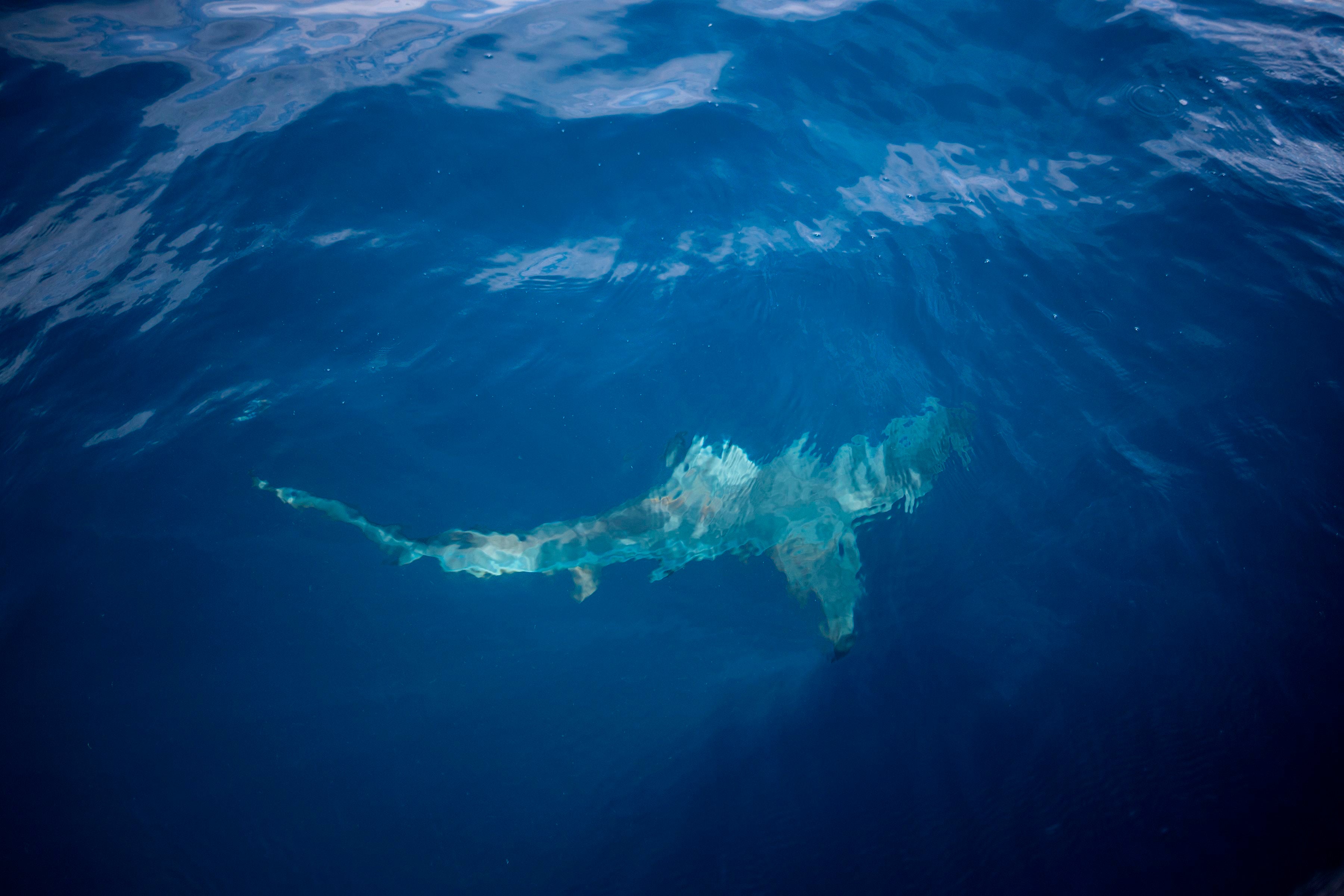Sharks are key to protecting habitats and fighting climate change, study finds
Changes to herbivore behaviours triggered by loss of predators can undermine ecological resilience to extreme climatic events, warn scientists

Your support helps us to tell the story
From reproductive rights to climate change to Big Tech, The Independent is on the ground when the story is developing. Whether it's investigating the financials of Elon Musk's pro-Trump PAC or producing our latest documentary, 'The A Word', which shines a light on the American women fighting for reproductive rights, we know how important it is to parse out the facts from the messaging.
At such a critical moment in US history, we need reporters on the ground. Your donation allows us to keep sending journalists to speak to both sides of the story.
The Independent is trusted by Americans across the entire political spectrum. And unlike many other quality news outlets, we choose not to lock Americans out of our reporting and analysis with paywalls. We believe quality journalism should be available to everyone, paid for by those who can afford it.
Your support makes all the difference.A new study examining the destruction of ecosystems has concluded that habitat degradation could be made worse by the extinction of predators.
Researchers looked at how the changes in the tiger shark population size in Shark Bay in Western Australia might affect the size of nearby seagrass meadows.
This was in turn used to determine whether or not the loss of apex predators in an ecosystem might have an effect on how that ecosystem responds to a major weather event, including climate change.
Shark Bay’s seagrass is the main source of food for sea cows and sea turtles, which are native to the ecosystem there.
The seagrass is also threatened by extreme weather events which have most recently included a 2011 heatwave.
Read more:
- Why John Oliver is right, plastic recycling is a broken system and what we should do about it
- UK ‘halfway to net zero’ due to dip in emissions caused by coronavirus pandemic
- How bad is bitcoin for the environment really?
- Climate change disproportionately affects women – but they can also provide the solution
This heatwave led to “catastrophic” damage to the seagrass meadows and forced the sea cows and turtles to look elsewhere for food.
The research, published in the Journal of Animal Ecology, involved university researchers from Florida International University, the University of Washington and Deakin University in Australia.
They found that conditions here were favourable for another type of experiment looking at whether or not removing the top predator, tiger sharks, from the ecosystem could also have an effect on the seagrass.
Tiger sharks routinely feed on sea cows and other large aquatic herbivores, meaning if apex predator numbers (in this case tiger sharks) were to decrease, the numbers of sea cows should increase.
Researchers stimulated sea cow grazing habits and found that seagrass meadow coverage declined rapidly. This suggested that without the tiger sharks there to eat the sea cows, the sea grass would suffer and be unable to regenerate.
The report concluded: “Our results suggest that changes to herbivore behaviours triggered by loss of predation risk can undermine ecological resilience to [extreme climatic events], particularly where long‐lived herbivores are abundant.”
It appears that both climate change and loss of the predatory species can in turn worsen the destruction of natural habitats.
Researchers suggested local and regional management in order to prevent widespread damage.
Dr Mike Heithaus, who co-authored the paper, said: “The tiger sharks are protecting the seagrass from being grazed. The big seagrass is not the dugongs’ [sea cows] favourite food, which is the little seagrass that moves in when there is a disturbance. But we find that the bigger seagrass doesn’t come back when it is disturbed so often by the grazing.”
He added: “When everything is hunky dory, we might not realise how important predators are. But when things go wrong – like a climatic event – that’s when you can see the importance of predators.”
Since 1970, the number of sharks worldwide has decreased by 71 per cent according to a study by Simon Fraser University in Canada.
Join our commenting forum
Join thought-provoking conversations, follow other Independent readers and see their replies
Comments